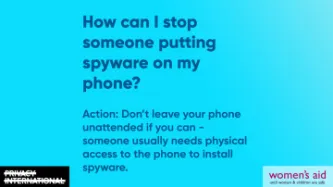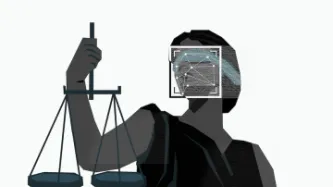Search
Content type: Advocacy
In August 2023, the UK Westminster Women and Equalities Committee launched a call for evidence into a short inquiry on women’s reproductive health.We submitted a response highlighting the increasing management of women’s reproductive healthcare through digital health initiatives. We raised concerns that these technologies can be privacy-invasive and result in highly sensitive personal information being shared in unexpected and potentially dangerous ways. We encouraged the Committee to ensure…
Content type: Long Read
Introduction
The 28th of September marks International Safe Abortion Day. It remains a day necessary to mobilise and raise awareness of the continued struggles women and girls face when accessing reproductive healthcare, including access to safe abortion. Across the world, abortion continues to be criminalised, restricted and in some places under attack. All of which constitute severe obstacles for women and girls to fully exercise their human rights, particularly their right to privacy, which…
Content type: News & Analysis
The relationship between privacy and access to abortion care
In 1973, in the state of Texas, it was a criminal offence to “procure or attempt” an abortion except if the purpose was “saving the life of the mother.” This law was enacted in 1854 by the Texas state legislature, and was part of a wave of provisions criminalising access to abortion care that was gaining ground across the U.S in the mid-1800s. It is worth highlighting that these laws were being passed at a time when women in the U.S…
Content type: Long Read
This piece is a part of a collection of research that demonstrates how data-intensive systems that are built to deliver reproductive and maternal healthcare are not adequately prioritising equality and privacy.
What are they?
Short Message Services (SMS) are being used in mobile health (MHealth) initiatives which aim to deliver crucial information to expecting and new mothers. These initiatives are being implemented in developing countries experiencing a large percentage of maternal and…
Content type: Case Study
The right to privacy is crucial to protect a couple’s equal rights within marriage.
The recent rise of spyware as an “off-the-shelf” product that anyone can purchase has been extremely worrying, as installing spyware on someone else’s phone means getting access to their contacts, their messages, their google searches, their location and more - all without them knowing.
Spyware is, increasingly, becoming another way for abusive spouses to control and monitor their partners. Nearly a third of…
Content type: Case Study
The right to privacy is one of the precedents used to establish reproductive rights. Laws and policies which impede upon individuals’ rights to access sexual and reproductive health services may also interfere with individuals’ right to privacy and to make autonomous decisions as it pertains to their health and fertility, meaning the two are linked. Reproductive rights are necessary for bodily autonomy.
Reproductive rights have, more recently, been put at risk by one of the most concerning…
Content type: Long Read
This piece was written by Aayush Rathi and Ambika Tandon, who are policy officers at the Centre for Internet and Society (CIS) in India. The piece was originally published on the website Economic Policy Weekly India here.
In order to bring out certain conceptual and procedural problems with health monitoring in the Indian context, this article posits health monitoring as surveillance and not merely as a “data problem.” Casting a critical feminist lens, the historicity of surveillance practices…
Content type: Advocacy
TEDIC, InternetLab, Derechos Digitales, la Fundación Karisma, Dejusticia, la Asociación por los Derechos Civiles y Privacy International acogen el llamado de la Relatoría Especial sobre Derechos Económicos, Sociales, Culturales y Ambientales (DESCA) de la Comisión Interamericana de Derechos Humanos (CIDH) de enviar información para la elaboración del Informe Anual sobre DESCA del año 2019, que se presentará ante la Organización de los Estados Americanos (OEA) en 2020.
El objeto de este…
Content type: Advocacy
TEDIC, InternetLab, Derechos Digitales, Fundación Karisma, Dejusticia, Asociación por los Derechos Civiles and Privacy International welcome the call made by the Special Rapporteurship on Economic, Social, Cultural and Environmental Rights (ESCER) of the Inter-American Commission on Human Rights (IACHR) to inform the preparation of the Annual Report of the ESCER for the year 2019, which will be presented to the Organization of American States (OAS) during 2020.
This submission aims to outline…
Content type: Long Read
We are excited to spotlight our Reproductive Rights and Privacy Project!
The Project is focused on researching and exposing organisations that collect and exploit the information of those seeking to exercise their reproductive rights. Working together with PI partners, other international grassroots organisations and NGOs, PI is researching and advocating against this data exploitation.
So, what are reproductive rights?
Sexual and reproductive rights, which are contained within Economic,…
Content type: Advocacy
On November 1, 2019, we submitted evidence to an inquiry carried out by the Scottish Parliament into the use of Facial Recognition Technology (FRT) for policing purposes.
In our submissions, we noted that the rapid advances in the field of artificial intelligence and machine learning, and the deployment of new technologies that seek to analyse, identify, profile and predict, by police, have and will continue to have a seismic impact on the way society is policed.
The implications come not…
Content type: Advocacy
Cases of female and gender diverse public figures being targeted with online harassment have become sadly common in the news. Female politicians are particularly affected – although journalists and in particular sports commentators are also frequently targeted as well. In some cases, the harassment goes as far death and rape threat for women and gender diverse people who dare speaking publicly. Beyond the freedom of speech implications – as we risk seeing women and gender diverse people being…
Content type: Video
Video courtesy of CPDP (https://www.cpdpconferences.org/)
What is the impact of online gender-based violence on survivors? What should be the role of companies in fighting this phenomenon? What is the link between the right to privacy? In this panel, which took place at CPDP in February 2019, academics, civil society and government representatives discuss the issue of online gender based violence with a privacy lens.
Chair: Gloria González Fuster, VUB -LSTS (BE)
Moderator: Valerie…
Content type: Advocacy
In response to the consultation on ‘Gender perspectives on Privacy’ by the UN Special Rapporteur on the right to privacy, Privacy International presented a submission with its observations.













